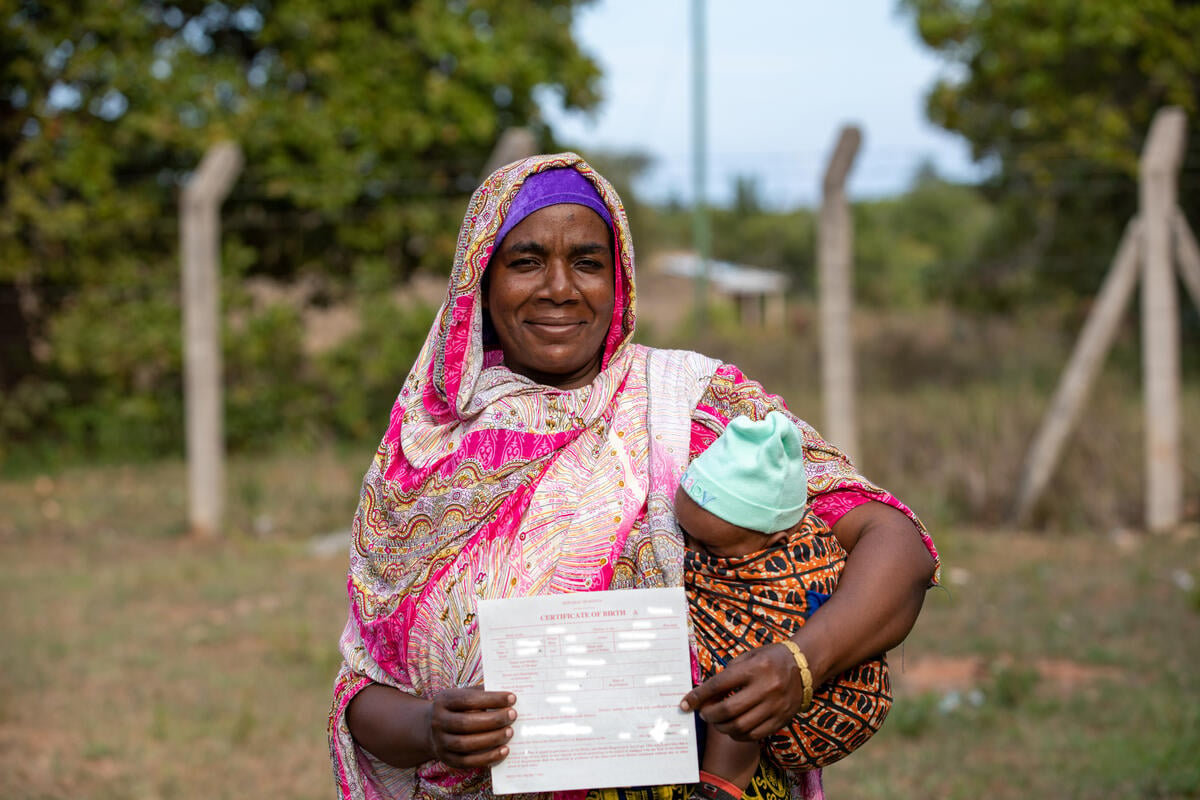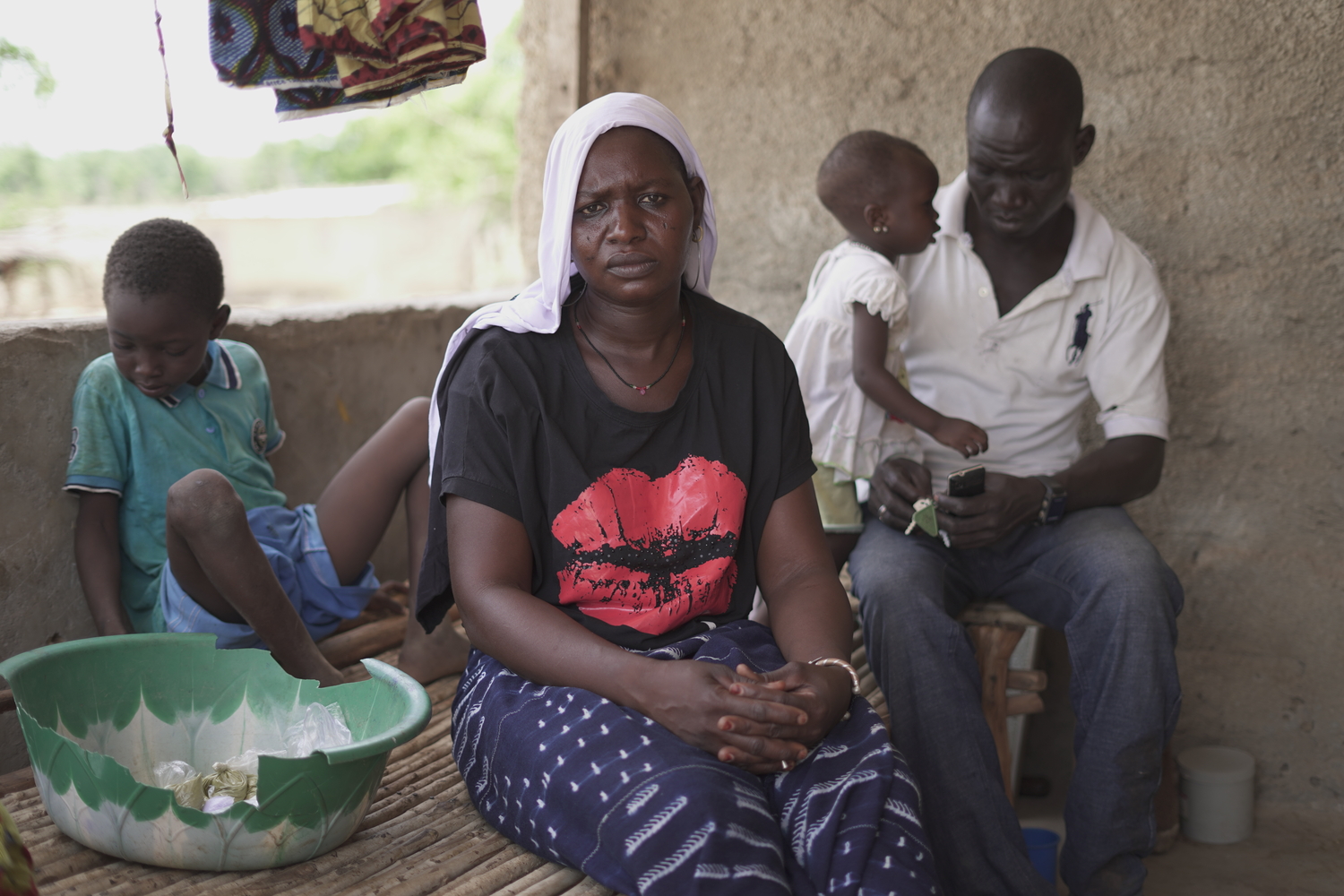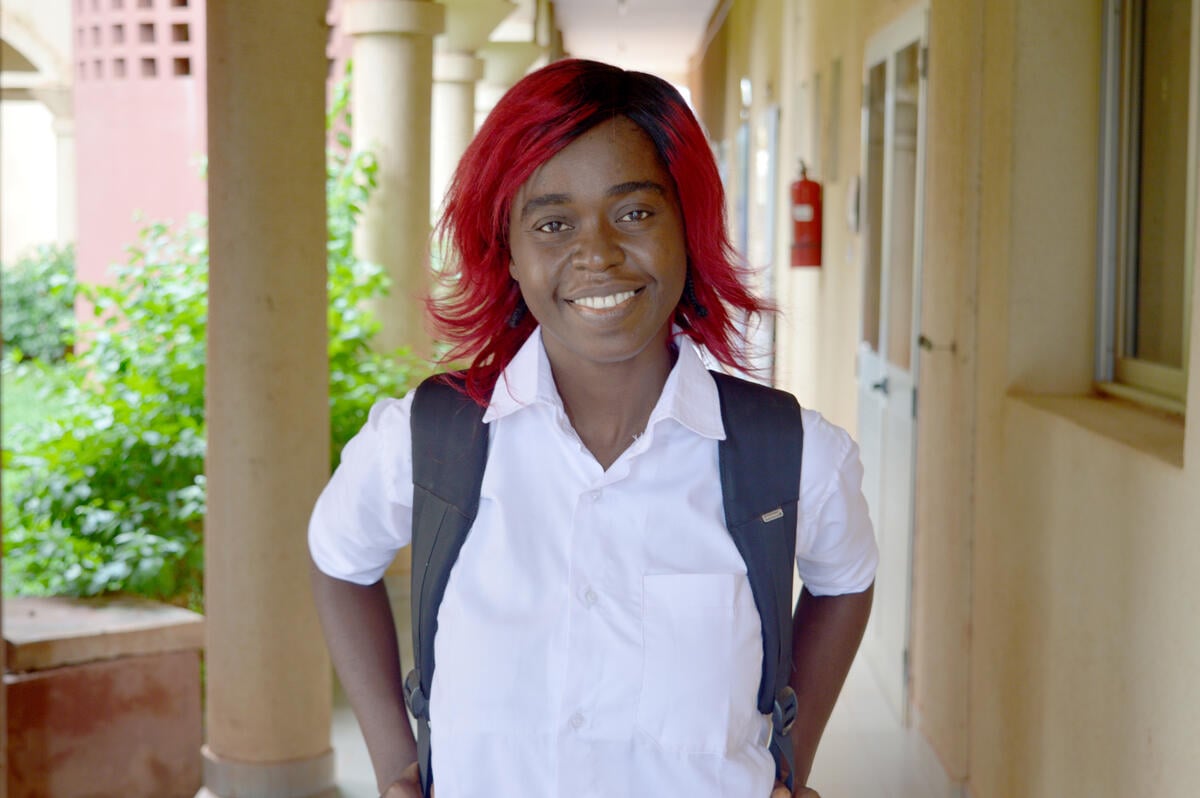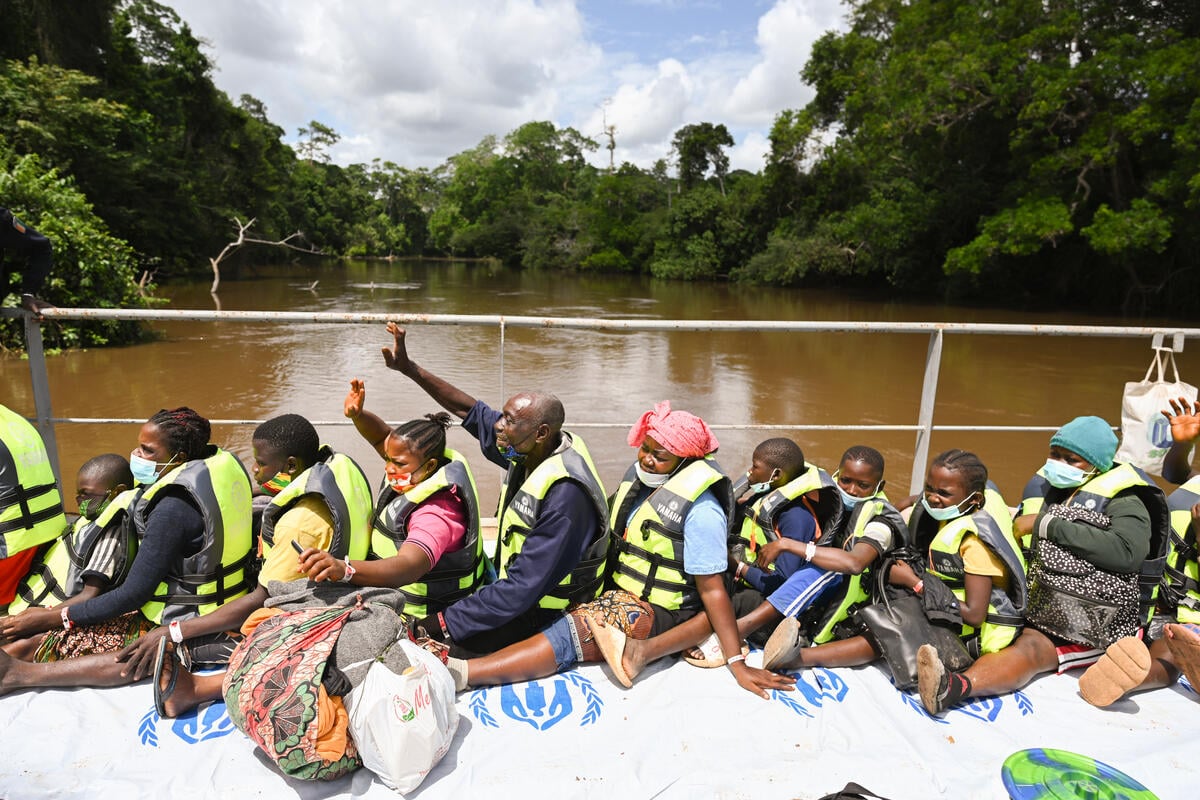Liberians flee for Côte d'Ivoire as new fighting erupts
Liberians flee for Côte d'Ivoire as new fighting erupts
3 June 2003
GENEVA - Thousands of Liberians have fled fresh fighting around the southern Liberian town of Pleebo for the relative safety of neighbouring Côte d'Ivoire in recent days, putting new pressure on communities already burdened by long-time refugees and the effects of Côte d'Ivoire's civil conflict.
More than 2,000 Liberians have arrived at Tabou in western Côte d'Ivoire since Sunday, paddling canoes 200 metres across the roaring Cavaly River, escaping a new round of fighting that has engulfed southern Liberia. Many of the new arrivals are crossing the frontier for a second or third time in search of refuge, UNHCR staff said, due to the fragile security situation in the region.
The frightened refugees are arriving mainly at the Yeoli and Nero entry points, bringing stories of heavy fighting between Liberian government and rebel forces battling to control the region despite the torrential rainy season downpours hampering travel in the area.
The new refugees, mostly women and children, told UNHCR that warfare in the Pleebo area had been extremely heavy in recent days, with one telling aid workers that the fighting was "so heavy the earth was shaking."
More than 15,000 Liberians have arrived in the Tabou area in the last 10 to 15 days, UNHCR field workers report. Tabou itself has a population of only 12,000 Ivorians, but receives only an hour of electricity daily and residents suffer from a serious shortage of clean water, with the newly arrived Liberians further straining the infrastructure. Conditions are very difficult in the rugged border region, where roads are awash in mud due to the heavy seasonal rains.
"We're in a race against the weather and the poor health condition of the new arrivals," said Panos Moumtzis, UNHCR's acting representative in Abidjan. "We're very worried about the children should diarrhoeal outbreaks become widespread."
The UN refugee agency has dispatched shelter materials to the new arrivals, and re-opened a transit centre in Tabou intended for 700 people but which currently shelters more than 2,500 people. The agency has eight experienced international staff members in the fragile border region, with a senior emergency officer and a site planner being dispatched this week to expand the transit centre.
UNHCR is also working to identify more villages willing to accept the fleeing Liberians. Amidst the sudden surge in refugees in need of shelter and assistance, aid workers are meeting with village chiefs to gauge their willingness to accommodate new arrivals. UNHCR is also providing assistance to communities willing to host the refugees.
Few non-governmental organisations are established in the region, complicating the relief operation. MSF has established medical centres at the crossing areas, and UNHCR has provided an ambulance to ferry refugees to the medical facilities. The World Food Programme is providing emergency food aid to the new arrivals.







